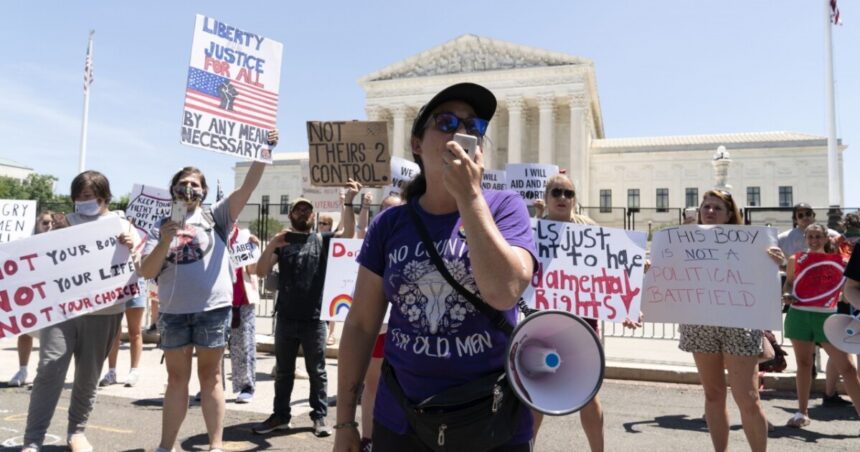Two years after the Supreme Court decision that overturned Roe v. Wade, the national landscape regarding abortion access is inconsistent, disjointed, and on the brink of the upcoming election.
Several states are considering ballot measures that, if approved, would alter state constitutions to establish abortion access as a fundamental right. In Pennsylvania and Nebraska, there are proposals to amend the states’ constitutions to either ban or further restrict abortion access.
“The Dobbs decision marked a new era in American politics,” stated Rachel O’Leary Carmona, the executive director of Women’s March. “It not only changed things for women but also for democracy.”
The Center for Reproductive Rights has been monitoring changes to state laws following the Dobbs v. Jackson Women’s Health Organization case. Currently, 17 states have total bans on abortion or bans after six weeks of pregnancy. Furthermore, another eight states have restrictions in place before viability.
On the contrary, 22 states have expanded or safeguarded abortion access since the Dobbs decision. In 17 states, providers can offer care to patients from out of state.
This varied landscape creates uncertainty for pregnant individuals. Kate Cox, a Texas resident who previously sued the state over abortion, is now facing another pregnancy. She expressed that in case of an emergency, her first call would be to her lawyer, followed by her doctor.
This fall, four states will have ballot initiatives aimed at amending their state constitutions to protect the right to abortion. Additionally, six other states are either collecting or have submitted signatures to pursue similar measures.
In some instances, these initiatives are part of citizen-led efforts, utilizing the ballot initiative process that requires the necessary signatures from citizens. This process is not available in half of the U.S. states.
The opposition argues that this form of direct democracy could be risky as citizens are bypassing their elected officials in making or repealing laws.
In states without a citizen initiative process, the majority does not always see their preferences reflected in policies.
In Texas and Louisiana, where abortion laws are stringent, polls reveal contrasting opinions among the public regarding abortion legality.
States with citizen ballot initiative processes are witnessing organized efforts to align policies with public desires. For example, Florida and Nebraska are pushing for constitutional amendments related to abortion access.
Advocating for citizen initiatives in states without this process can pose challenges.
In West Virginia, a mayor initiated a petition for a ballot initiative process, but it did not gain traction in the Republican-controlled legislature. In Tennessee, the Republican House Majority Leader equated ballot measures to polls rather than the legislature’s thorough review of complex policy-making.
Related stories:
Biden campaign emphasizes abortion stance on 2-year anniversary of Dobbs decision





